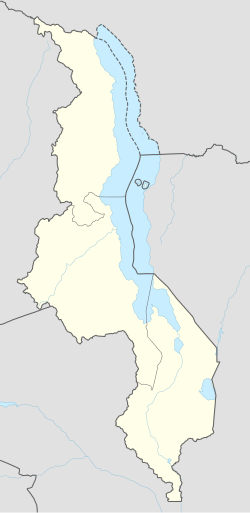This article includes a list of general references, but it lacks sufficient corresponding inline citations .(November 2021) |
Mchinji Airport | |||||||||||
|---|---|---|---|---|---|---|---|---|---|---|---|
| Summary | |||||||||||
| Airport type | Public | ||||||||||
| Serves | Mchinji | ||||||||||
| Elevation AMSL | 3,900 ft / 1,188 m | ||||||||||
| Coordinates | 13°48′20″S32°53′38″E / 13.80556°S 32.89389°E | ||||||||||
| Map | |||||||||||
| Runways | |||||||||||
| |||||||||||
| Sources: Google Maps | |||||||||||
Mchinji Airport( ICAO : FWMC) is an airport serving the city of Mchinji, Republic of Malawi.
